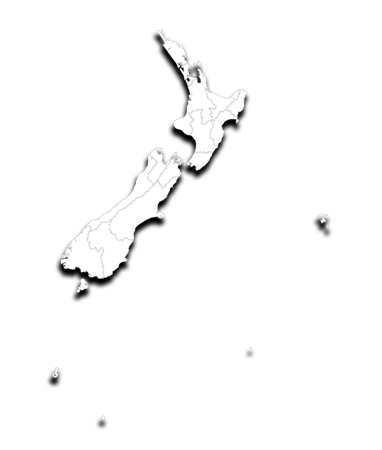PCT NATIONAL PHASE ENTRY
New Zealand

Deciding what's considered the "best way" to handle a patent application with a national patent office is kind of subjective, and New Zealand exemplifies this perspective. There are compelling reasons to consider filing a patent in New Zealand, including its strategic location positioned between the Asia-Pacific region and the Americas, serving as a convenient gateway to both markets. The country offers robust intellectual property protection through a strong legal system and a streamlined examination process. Furthermore, New Zealand stands out for its culture of innovation, with active government investment in research and development. This creates an environment that nurtures and promotes the advancement of novel ideas and inventions, complemented by an array of funding options available to support innovative businesses and startups.
The major requirements and procedure to file a patent application in New Zealand are mentioned below:
 DEADLINE TO FILE PATENT APPLICATION
DEADLINE TO FILE PATENT APPLICATION
The designated period for submitting a patent application in this jurisdiction under the framework of the Patent Cooperation Treaty (PCT) is 31 months from the earliest date of priority.
 LANGUAGE TO FILE NATIONAL PHASE APPLICATION
LANGUAGE TO FILE NATIONAL PHASE APPLICATION
In the region, the official language for filing patent application is English. If the international application is in a different official language, providing a translation into English is mandatory. This ensures accuracy and regulatory compliance, which make a seamless and trouble-free progression through the patenting procedures.
 EXTENSION FOR LATE ENTRY INTO NATIONAL PHASE
EXTENSION FOR LATE ENTRY INTO NATIONAL PHASE
It is feasible to reinstate the term in such cases. To initiate the process of late entry, a request should be promptly submitted following the expiration of the 31-month deadline. This request must be substantiated with supporting evidence in the form of a statutory declaration or affidavit. The declaration or affidavit should comprehensively outline the circumstances that resulted in missing the specified time limits. It is essential that requests for late entry convincingly demonstrate that the failure to enter the national phase within the designated period was unintentional and that no unreasonable delay has occured in filing the late entry application.
 REQUIREMENTS FOR FILING PATENT APPLICATION
REQUIREMENTS FOR FILING PATENT APPLICATION
The essential documents required for filing national phase application include:
- Certified priority documnet
- Power of Attorney: address for rendering the services in New Zealand is required. POA is not necessary unless expressly requested by the Commissioner.
- Assignment Deed: statement providing justification for the applicant's entitlement to the patent when the applicant is not the inventor.
 COST EXEMPTION AVAILABLITY FOR NATIONAL PHASE FILING
COST EXEMPTION AVAILABLITY FOR NATIONAL PHASE FILING
No exemptions in cost are granted for the patent application when entering the national phase.
 REQUEST FOR EXAMINATION
REQUEST FOR EXAMINATION
The national patent applications undergo examination solely upon receipt of a request for examination and payment of the examination fee. It is imperative to submit the examination request within five years from the international filing date. Alternatively, if the Office instructs the applicant to request examination, it must be done within two months from the date of the direction.
 PATENT PROSECUTION HIGHWAY
PATENT PROSECUTION HIGHWAY
The aim of the PPH is to make it super easy for applicants to get a patent everywhere and quickly. It's like a global teamwork where IP Offices share their findings to make exams easier and improve their quality worldwide, making it a breeze for everyone. Under specific conditions, it becomes feasible to ask for a speedy examination through PPH.
Several agreements have been made between patent offices to encourage collaboration. These agreements allow patent applicants to ask for quicker processing in the national phase. This means that patent examiners can use work done by other participating offices. The work products may include:
- The written opinion from the International Searching Authority,
- The written opinion from the International Preliminary Examining Authority, or
- The international preliminary examination report under the PCT, given certain conditions are met
Intellectual Property Office of New Zealand has established PCT-PPH agreements and is one of the participating offices.
IPONZ became a participant in the GPPH pilot program on July 6, 2017. While there is no extra fee associated with requesting expedited examination under the Global Patent prosecution Highway (GPPH), it is essential that the appliant's patent application satisfies specific requirements before the GPPH request can be accepted.
 RENEWAL FEE
RENEWAL FEE
The obligation for annual fees commences from the fifth year and must be settled before the termination of the fourth anniversary of the international filing date. It's important to note that annual fees cannot be remitted more than 3 months before the due date. In case of delayed payment, a six-month grace period is permitted, but it necessitates the payment of an associated surcharge.
 PATENT TERM
PATENT TERM
The patent remains valid for a period of 20 years from the international filing date. In the following jurisdiction, patent term extension is entirely non-existent, with no provisions for prolonging the duration under any circumstances.
 INNOVATION INDEX
INNOVATION INDEX
New Zealand's rank of 27th out of 132 countries in the Global Innovation Index reflects its notable achievements and capabilities in the realm of innovation. It's positioning indicates that it is a country that actively engages in and promotes innovation across multiple sectors. The factors contributing to this rank include investments in research and development, the quality of infrastructure, educational initiatives, and the sophistication of business practices and technological readiness. It also tells that it performs well in comparison to a diverse group of nations, showcasing its commitment to fostering a conducive environment for creativity, technological advancement, and economic development
Disclaimer: The information available on this portal is solely for your kind perusal and general interest only. All the information on the portal is provided in good faith and therefore should not be relied upon or construed as a legal advice. If you find and/or encounter any errors, inaccuracies or discrepancies in such information, please write us.
